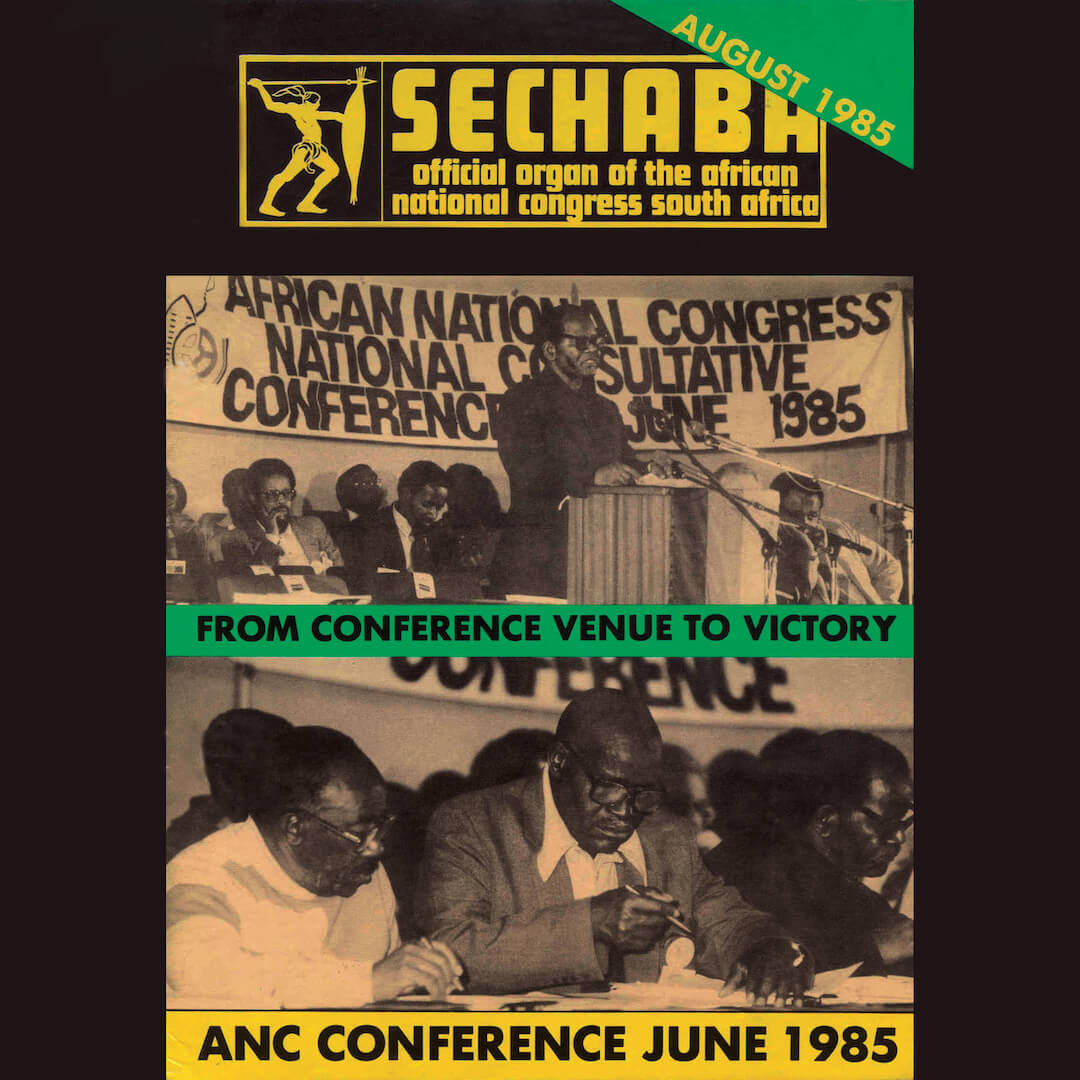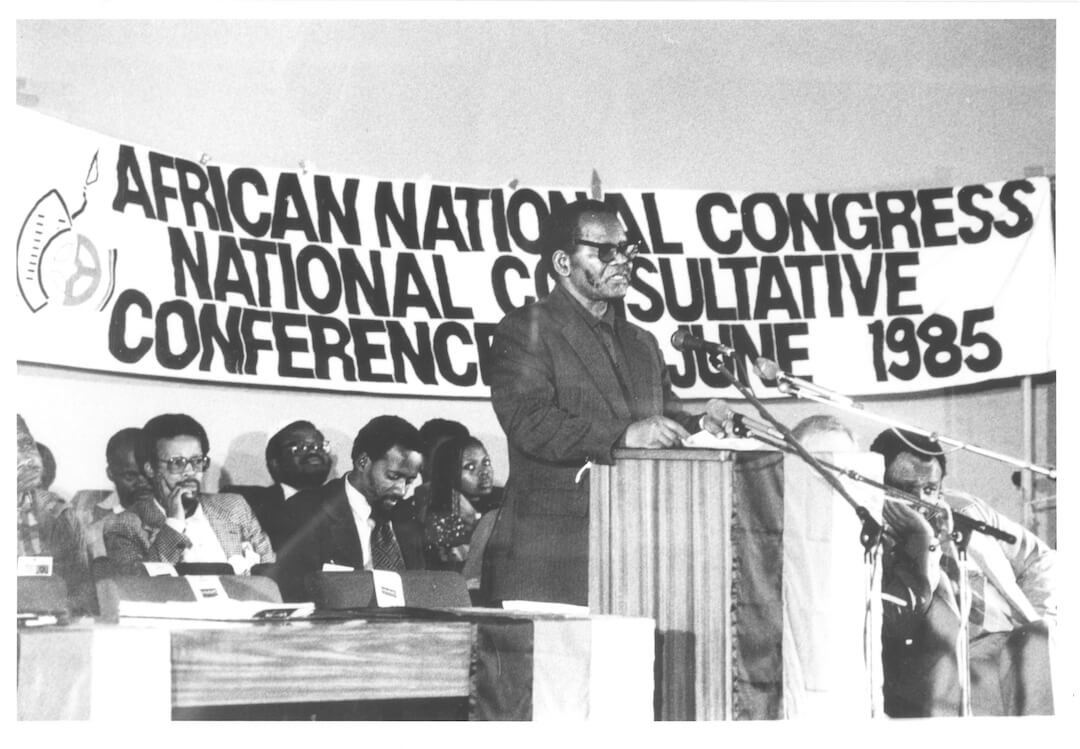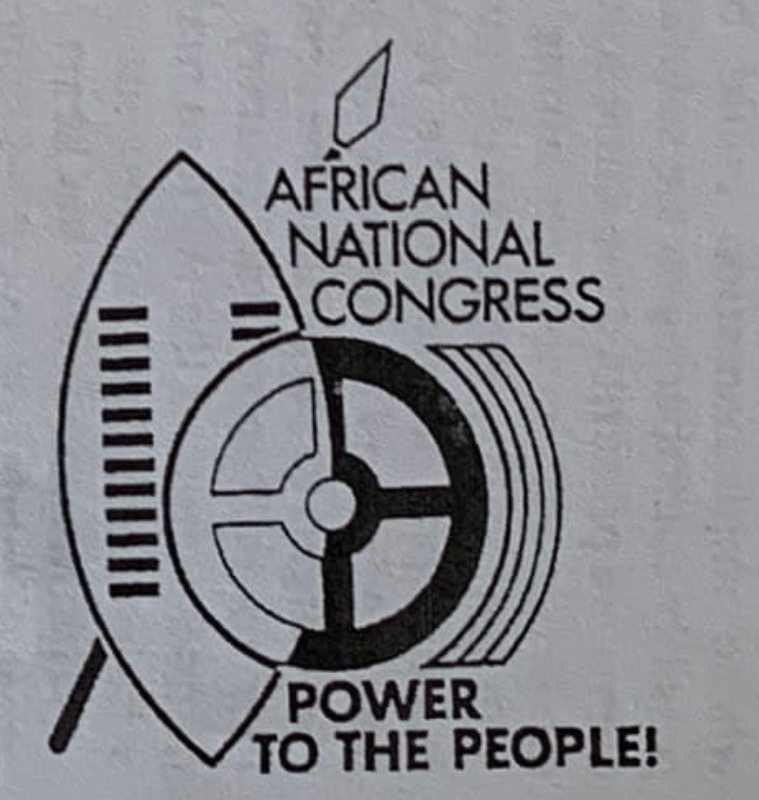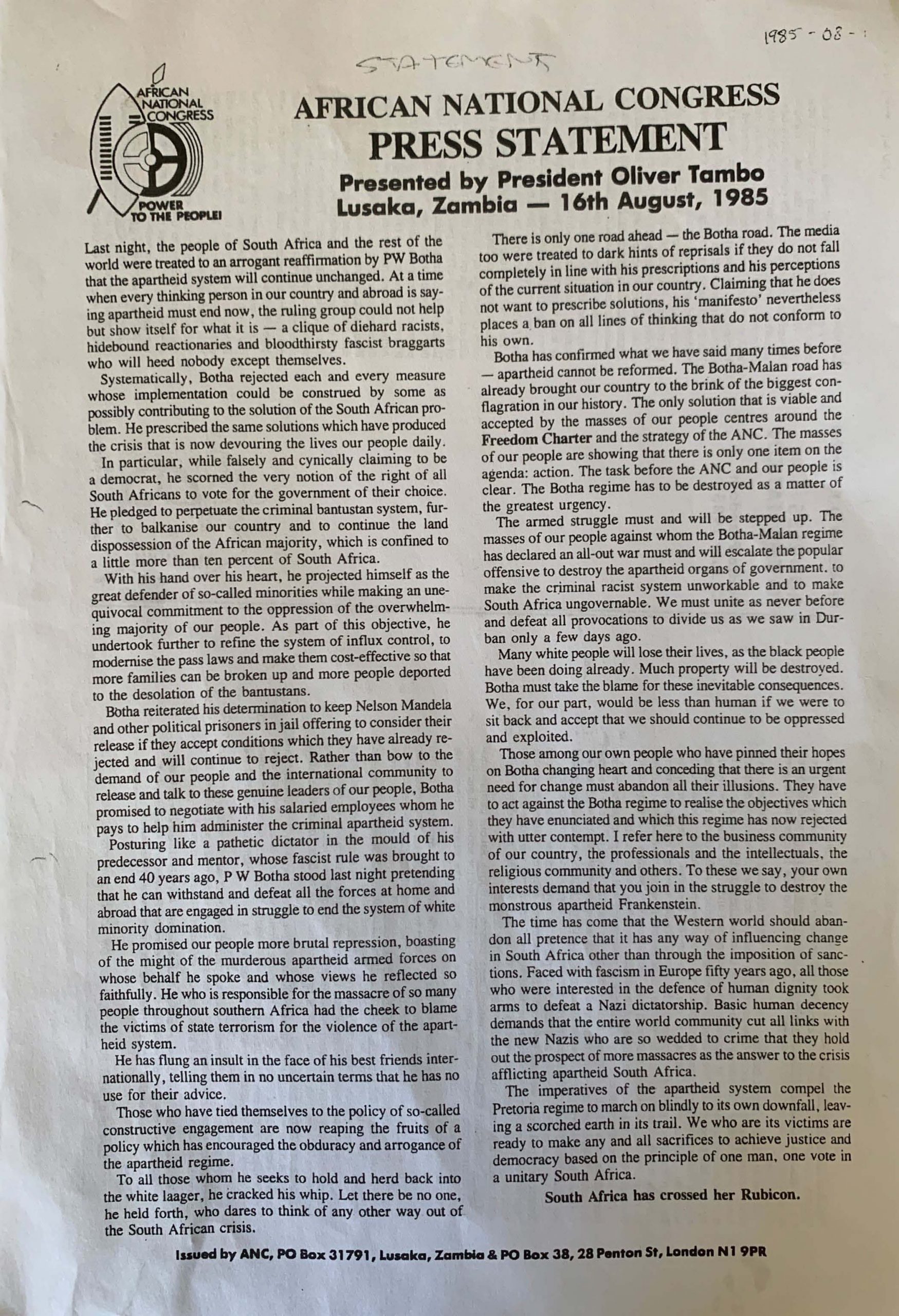The story of Kabwe and the events that followed
16 JUNE 1985

The conference
in Kabwe:
The cavernous hall in the town of Kabwe in Zambia was surrounded by Zambian troops, stationed there should commandos from South Africa be sent to attack ANC delegates. It was here that Tambo made his two important appeals. Although the call for the seizure of power and the support for a negotiated settlement appeared to be completely at odds with one another, they were seen by the ANC as ‘simultaneous elements of the struggle to bring about the demise of apartheid’.
A new
energy:
Although the conference did not thrash out complex questions of strategy and tactics – how the seizure of power would actually take place – Tambo’s powerful statements inspired members of the organisation to believe that white domination could be challenged and defeated. The conference refocused the ANC’s energies and pressed its political advantage. Internationally, there was a new interest in the ANC as an alternative government. After the conference, Tambo went onto Radio Freedom and stated:
“We have advanced a great deal towards the realisation of our goal of united, democratic and non-racial South Africa. There can be no stopping now. There can be no turning back … Our watchwords must be mobilisation, organisation, struggle.”
Pallo Jordan’s
seminal paper:
After Kabwe, Tambo invited the ANC historian and political activist, Pallo Jordan, to prepare a paper on how to approach a future constitutional dispensation in South Africa. Jordan went on to point out that the conservative forces in South Africa were developing concepts of ‘group rights and power sharing’ in order to protect what they called ‘the white minority’. Jordan believed that the ANC should seize the initiative to advance its long-standing call for a Bill of Rights to protect all South Africans from abuse from any quarter. In his report, he proposed that the ANC immediately set up a ‘constitutional think tank’ alongside the newly formed ANC Department of Legal and Constitutional Affairs.
Tambo’s
response:
The ANC President responded readily to this suggestion, and set up the Constitutional Committee in Lusaka in January 1986. The Committee would report directly to Tambo, and would take on the unprecedented task of developing a constitutional plan for a free South Africa. Tambo expressed his hope that the proposals that would emerge would challenge the constitutional models that were being bandied around by supporters of apartheid as well as by the international community.
The Bill
of Rights:
It was also at this point that the NEC took the key decision to support an entrenched Bill of Rights that would protect the rights of all South African citizens, regardless of race, colour, or creed. This created the framework within which the Constitutional Committee worked.
In their own words
“The days we will spend here will live forever in the records of the struggle as marking a turning point in the history of all the people of South Africa. [It] will be remembered by our people as a council-of-war that planned the seizure of power by these masses, the penultimate convention that gave the order for us to take our country through the terrible but cleansing fires of revolutionary war to a condition of peace, democracy and the fulfilment of our people who have already suffered far too much and far too long.”
-Oliver Tambo, then President of the ANC, in his political report at Kabwe
“In every outward way, the time seemed inauspicious for negotiations. But often, the most discouraging moments are precisely the time to launch an initiative. In such times people are searching for a way out of their dilemma.”
“Talks with the enemy are in and of themselves, not harmful. If negotiations are viewed as yet one more terrain of struggle, rather than as a means of drawing the struggle to a close, we have no reason to shun them … We must approach talks as a means of winning at the conference table or consolidating what we have won
on the battlefield.”
-Pallo Jordan, author of the ANC negotiations committee report, December 1985
“Kabwe was a highwater mark in the ANC’s struggle. It both reaffirmed the intensifying armed and mass struggle against apartheid and initiated a process of negotiating and drawing up a new constitution for a democratic South Africa …”
–Albie Sachs, then member of the ANC Constitutional Committee
“The leadership of the ANC understood that it wasn’t just good enough to destroy apartheid – we also had to build. Whether we liked it or not, the potential of a negotiated solution was going to be real and we needed to embrace it with the world behind us.”
-Cheryl Carolus, then a leader of the United Democratic Front (UDF)
“It’s not enough to pull down the flag fluttering outside the Union Buildings. We’ve got to convince them to lay down their arms.”
–Thabo Mbeki, then Tambo’s political secretary, top diplomat, and leader of the SACP
“Post-Kabwe … Tambo says our main task is to begin to put together a document enunciating South Africa beyond the Freedom Charter. He says that it’s not good enough to simply say ‘The people shall govern’, ‘South Africa belongs to all who live in it’. This was just a wish list. I want to see the evolution of the South Africa that we want … beyond apartheid in constitutional terms. That’s how we were formed together into that committee. We were to work fulltime to realise this critical element of our struggle, the killing of the apartheid system once and for all.”
-Penuell Maduna, then appointed member of the ANC Constitutional Committee in 1986
“We had always said that our struggle was based on four pillars and negotiations was one of them so that’s why we were able to move forward under those difficult circumstances.”
–Mavivi Myakayaka-Manzini, then member of the ANC Women’s Section
“Our task is to prepare men and women for equality; this means that we must fight against male chauvinism, male domination, we must do away with male domination in the home, village, town, factory, workshop, in politics, economics and religion. In particular, we must fight domination even within our movement. No society is free if women are not free.”
-Discussion paper, ‘Role and Place of Women’, presented at the special session on women at the Kabwe conference
Listen to Albie Sachs reflect on the
Kabwe conference









